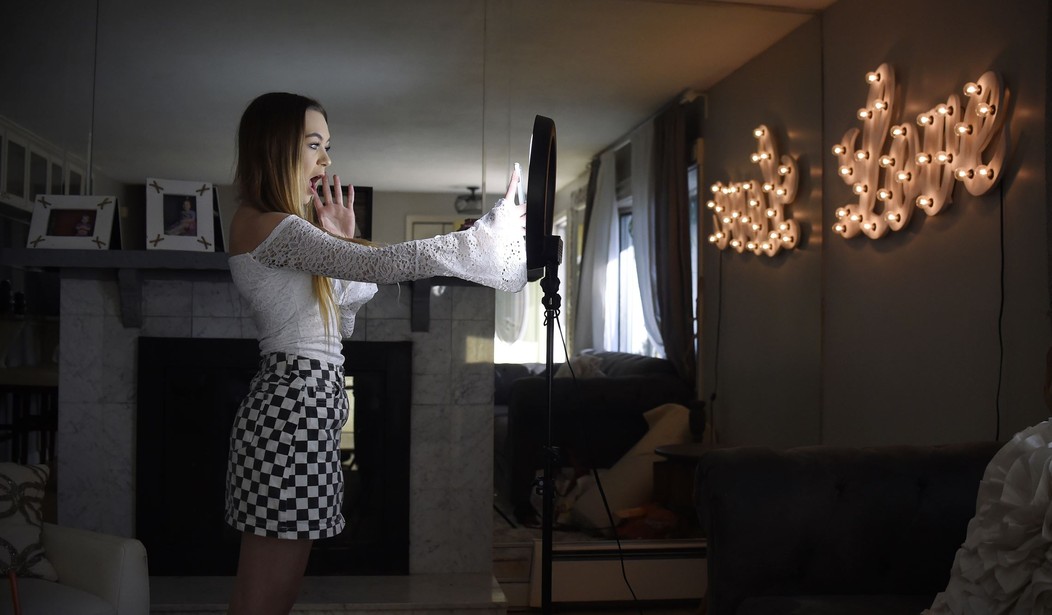A recently released survey of 1,300 American teenage girls’ (ages 11-15) social media use has concluded, among other potentially troubling findings, that almost half of the girls surveyed who use TikTok self-report feeling “addicted” to the platform.
Via Common Sense Media (emphasis added):
Girls are using these platforms with striking frequency. On average, girls who use TikTok, YouTube, or Snapchat say they are spending over two hours per day on these platforms, and those who use Instagram or messaging apps are spending over 90 minutes on them…
Nearly half (45%) of girls who use TikTok say they feel “addicted” to the platform or use it more than intended at least weekly, and almost one in three girls (30%) who use Snapchat say they feel daily pressure to be available or responsive to peers…
Although social media “addiction” is not a formal psychiatric diagnosis, this phrase is used colloquially to describe feelings of difficulty controlling social media use, so we used this term in our survey. A higher proportion of girls who use TikTok (45%) reported feeling “addicted” to the platform or using it more than intended at least weekly, compared to the proportion of other platform users who feel this way about Snapchat (37%), YouTube (34%), and Instagram (33%) … Girls were also more likely to say that TikTok use (versus other platforms) interferes with their sleep, with four in 10 girls (41%) who use TikTok saying it interferes with their sleep at least weekly, and one in four (24%) saying it interferes daily.
TikTok is the ultimate app for ADHD-afflicted children (and adults as well) because it presents an endless stream of videos, back to back, in 15 or 30-second clips, which happens to be about the average attention span of Zoomers.
This isn’t to pick on Zoomers or to claim that there is anything biologically wrong with their hardwiring; any generation would have the same issues if it had grown up inundated in the kind of ubiquitous tech that Gen Z has. Even as an adult, I sometimes feel that social media has diminished my capacity to maintain attention on any given topic without distraction.
As I covered recently for PJ Media in the context of a Zero-COVID lunatic renting out an entire theater to privately screen “Barbie” with masking and social distancing, TikTok is an absolute hub of mental illness.
But if you take a look at Chinese TikTok, you’ll notice that the content is decidedly more wholesome and less neurotic.
Via Deseret News (emphasis added):
Although they’re both owned by ByteDance, Douyin — China’s version of TikTok — offers a different version of the social media app that is unavailable to the rest of the world, especially for children.
“It’s almost like they recognize that technology is influencing kids’ development, and they make their domestic version a spinach version of TikTok, while they ship the opium version to the rest of the world,” Tristan Harris, a former Google employee, and advocate for social media ethics, said of China’s approach to TikTok.
“If you’re under 14 years old, they show you science experiments you can do at home, museum exhibits, patriotism videos and educational videos,” said Harris, according to “60 Minutes,” adding that children in China were limited to only 40 minutes a day on the app…
In the U.S., TikTok is known for its addicting, personalized and predictive algorithm, specifically tailored to the interests of whoever is scrolling…
TikTok doesn’t have a specific version made for children, and limits are completely voluntary and can be set up by parents if they wish to do so…
Dr. Nia Williams, a researcher at Bangor University who specializes in children’s mental health, told BBC that TikTok’s “short and sweet” video format is designed to give hits of dopamine with each video, keeping users addicted.
The Chinese Communist Party and its military wing, the People’s Liberation Army (PLA), pioneered the concept of “unrestricted warfare,” meaning a holistic approach to war-making not confined to kinetic attacks.










